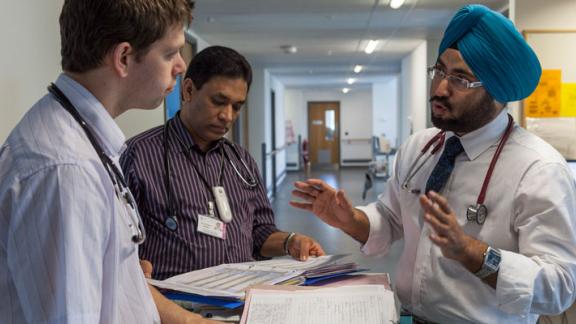NHS Long Term Workforce Plan 2023

Today, 30 June, NHS England has published its Long Term Workforce Plan which sets out how the NHS will address existing and future workforce challenges by recruiting and retaining thousands more staff and working in new ways to improve the experience of staff and patients.
Commissioned and accepted by the government, the plan provides a costed approach on developing the current NHS workforce to meet current and future demand and challenges and to support the health and wellbeing of the population. Over £2.4 billion has been committed on top of existing funding commitments to fund additional education and training places over the next five years. The three areas that NHS England have focussed on in the plan are:
-
Train: Substantially growing the number of doctors, nurses, allied health professionals and support staff. This is underpinned by a £2.4 billion funding commitment.
-
Retain: A renewed focus and major drive on retention, with better opportunities for career development and improved flexible working options. This comes alongside reforms to the pension scheme, with an aim to retain 130,000 staff working in the NHS for longer.
-
Reform: Working differently and delivering training in new ways. Advances in technology and treatments will be explored and implemented to help the NHS modernise and meet future requirements.
Read the full NHS Long Term Workforce Plan 2023 on NHS England's website.
Next steps
We will work on developing further supporting materials and highlight where our existing resources can help you and your teams to develop your local plans to implement the Long Term Workforce Plan.
Further information
- NHS Long Term Workforce Plan 2023: what employers need to know - A briefing which highlights the key NHS Employers' resources and actions employers will need to take to implement the NHS Long Term Workforce Plan.
- NHS Employers' response to the plan.
- NHS Confederation's response to the plan.
- Read the Cavendish Coalition's response.



